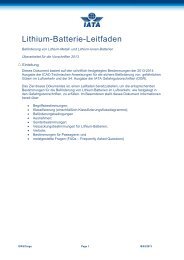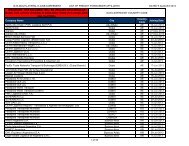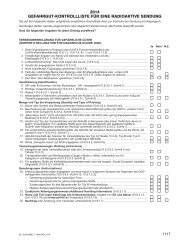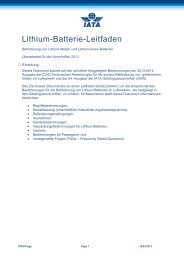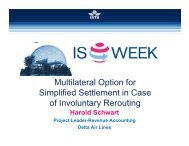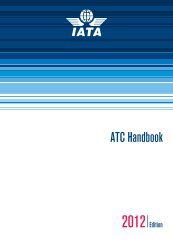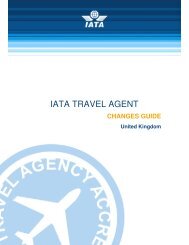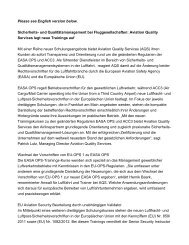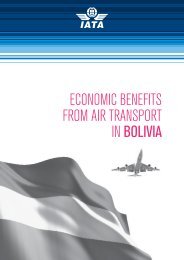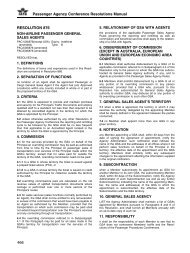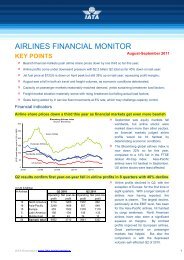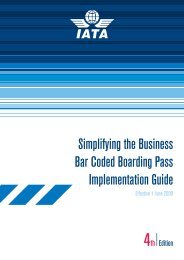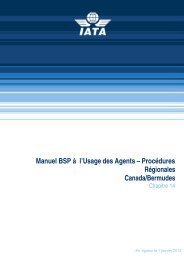Economic Regulation - IATA
Economic Regulation - IATA
Economic Regulation - IATA
Create successful ePaper yourself
Turn your PDF publications into a flip-book with our unique Google optimized e-Paper software.
05 - <strong>Economic</strong> <strong>Regulation</strong> 39<br />
CONSULTATION AND<br />
CONTRACT NEGOTIATION<br />
An alternative option to direct regulation is to promote<br />
commercial negotiations between users and an airport<br />
or ANSP in setting price levels and investment plans.<br />
Such a system is used in Canada and the US, though<br />
primarily at airports that have public sector ownership<br />
and/or control.<br />
The contractual option does allow airline users to have a<br />
greater input into operational and investment expenditure.<br />
It ensures that investment only proceeds if airline users are<br />
willing to pay for it and provides a mechanism for airlines<br />
to initiate new investment schemes. It also allows airlines<br />
to take their own equity stakes in airport investments and<br />
to have a key role in the project management.<br />
However, while a more transparent approach, the<br />
contractual option by itself does not solve the problem of<br />
market power. The airport will still have more information<br />
about costs than the airline users and more discretion and<br />
bargaining power over the charges that are eventually<br />
set. In addition, airline users are not homogeneous and<br />
are not often united in their commercial objectives.<br />
Therefore, not all airlines will support or be willing to pay<br />
for an investment, even though each airline (along with<br />
new entrants) will be able to use the investment once<br />
implemented.<br />
The contractual option also contains no independent<br />
incentive to deliver efficiency improvements, with airports<br />
and airlines negotiating an agreed position rather than<br />
necessarily the optimal one. There is also no independent<br />
mechanism for resolving disputes, which are more likely<br />
to arise if the airport is privately-owned and focused on<br />
profit maximisation.<br />
Therefore, while greater scope for commercial<br />
negotiations between airline users, airports and ANSPs is<br />
to be welcomed, it is more effective as a supplement to a<br />
price-cap regulatory system rather than on a standalone<br />
basis.



